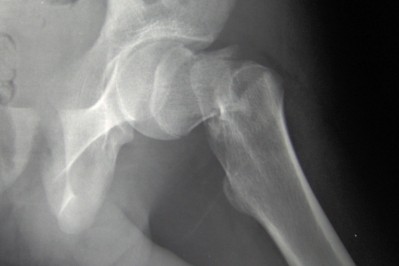Carotenoids may improve asthma symptoms: RCT data

Consumption of an antioxidant-rich diet led to improvements in both lung capacity and longer times for an asthmatic attack to worsen, according to findings published in the American Journal of Clinical Nutrition.
Researchers from the University of Newcastle in New South Wales, Australia report that no such benefits were observed when blood levels of carotenoids were increased using lycopene-rich tomato extracts, suggesting that “whole-food approaches should be used to achieve maximum efficacy of antioxidant interventions”.
“Interestingly, the high-antioxidant and low-antioxidant diets used in this study are very relevant to Western populations,” wrote the researcher. “The composition of the high-antioxidant diet, which consisted of 5 servings of vegetables and 2 servings of fruit daily, is equivalent to that currently recommended for adults in both Australia and the United States.
“Conversely, the low-antioxidant diet, which incorporated one serving of fruit and 2 servings of vegetables daily, represents the usual dietary intake in Western countries […].
“Hence, this study indicates the potential for typical Western dietary patterns to contribute to a worsening of lung function and asthma control.”
Asthma
According to the American Lung Association, almost 20m Americans suffer from asthma. The condition is reported to be responsible for over 14m lost school days in children, while the annual economic cost of asthma is said to be over $16.1bn.
Figures are similarly large in Europe, with the European Federation of Allergy and Airway Diseases Patients Association (EFA) estimating that over 30m Europeans suffer from asthma, costing Europe €17.7bn every year. The cost due to lost productivity is estimated to be around €9.8bn.
There is evidence in the scientific literature that antioxidants may improve symptoms of the condition, and a study with mice from the University of Newcastle, UK indicated that a lycopene-rich tomato extract (Lyc-O-Mato, Lycored) could decrease the response of inflammatory cytokines in the lungs of mice, as well as a two-fold decrease in the number of eosinophils – white blood cells associated with an allergic or asthmatic immune response (The Journal of Nutritional Biochemistry, doi: 10.1016/j.jnutbio.2009.12.003).
The new study also used Lyc-O-Mato for the supplementation part of the study, but in this human study, no benefits were observed beyond increasing blood levels of carotenoids.
Study details
The Australia-based scientists recruited 137 asthmatic adults to participate in their study. Participants were randomly assigned to consume an antioxidant-rich or an antioxidant-poor diet for 14 days. The antioxidant-rich diet consisted of five servings of vegetables per day and two servings of fruit, while the antioxidant-poor diet was only two vegetable servings and one fruit serving per day.
After this initial 14 day intervention, the high antioxidant diet group was given additional placebo up to week 14, while the low antioxidant group was given the daily lycopene-rich tomato extract supplement.
Results showed that participants in the low-antioxidant group had lower lung function and a shorter time for asthma exacerbation than people consuming the high-antioxidant group. In addition, people in the low-antioxidant diet were 2.3 times more likely to exacerbate, said the researchers.
No differences were observed between the groups at the end of the study (14 weeks) for measures of inflammation or clinical outcomes.
“We observed that manipulating dietary patterns, by changing the intake of antioxidant-rich foods, is more effective at improving asthma outcomes than is using a nutrient supplement,” wrote the researchers.
“This may provide an explanation for the inconsistency in antioxidant supplementation trials in asthma to date […] Dietary modifications using whole-food interventions containing antioxidants in their natural matrix are most likely to provide beneficial and safe treatment of asthma.”
Source: American Journal of Clinical Nutrition
Published online ahead of print, doi: 10.3945/ajcn.111.032623
“Manipulating antioxidant intake in asthma: a randomized controlled trial”
Authors: L.G. Wood, M.L. Garg, J.M. Smart, H.A. Scott, D. Barker, P.G. Gibson
















